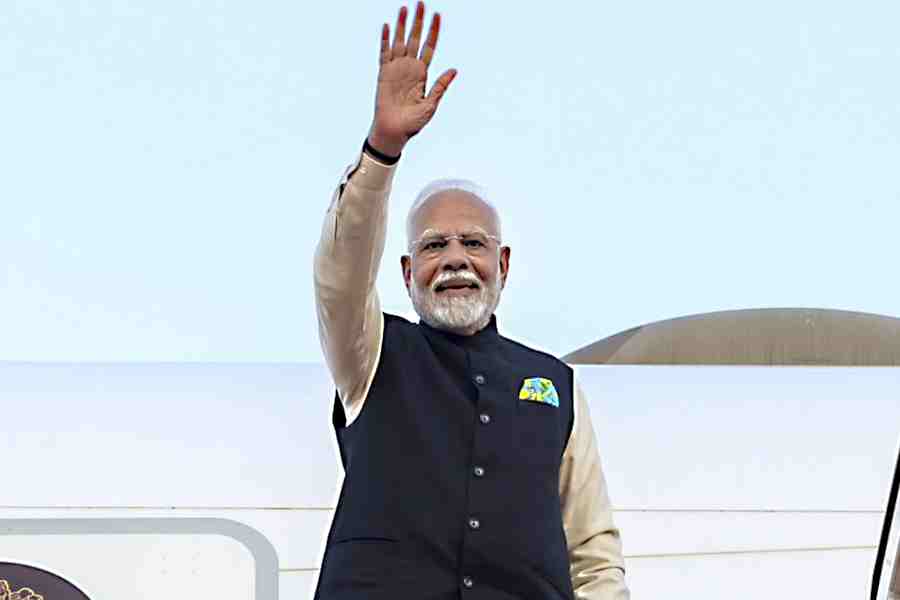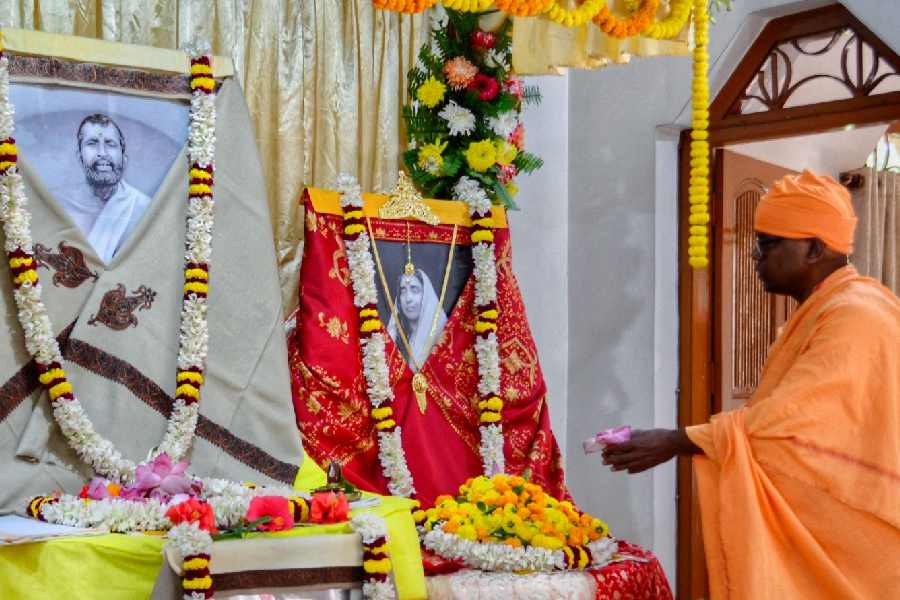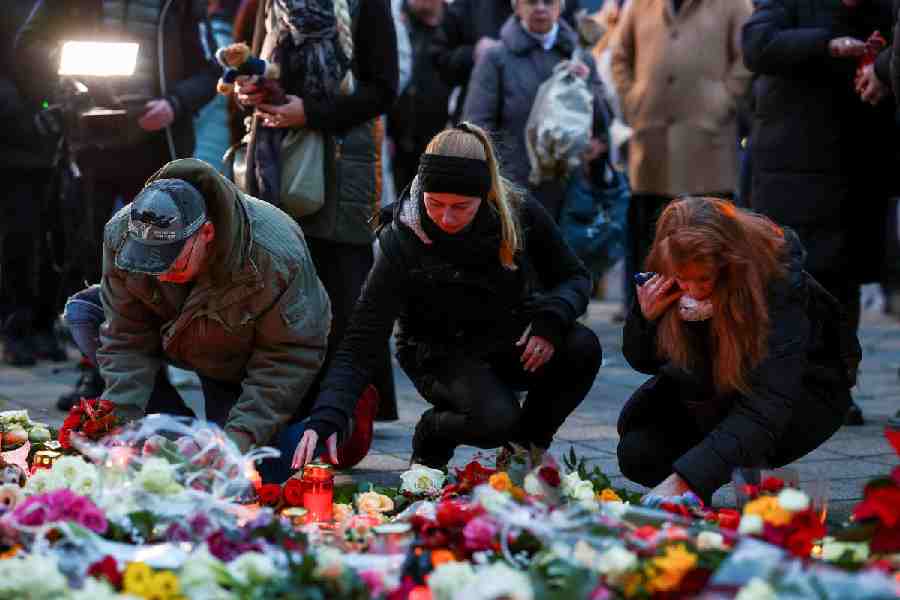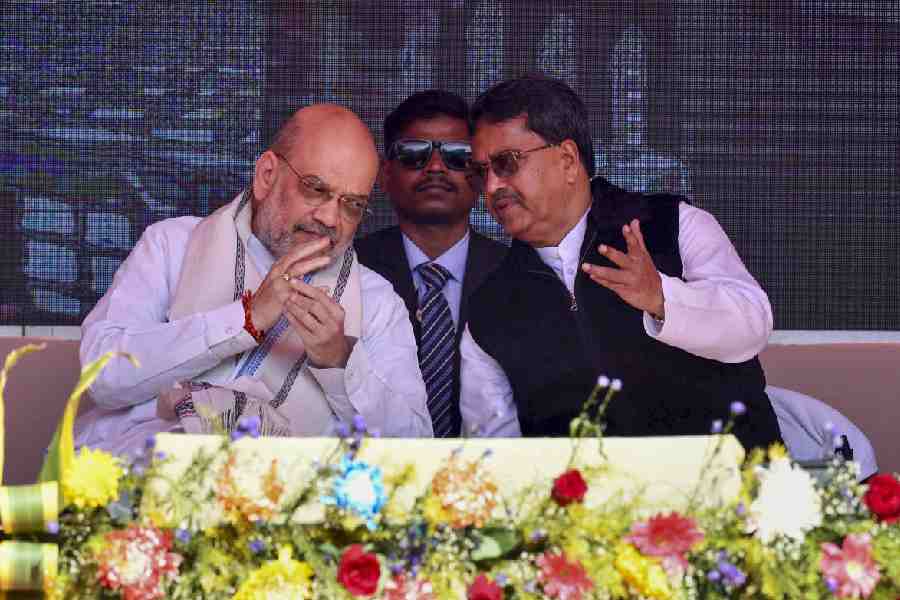 Monday, 23 December 2024
Monday, 23 December 2024
 Monday, 23 December 2024
Monday, 23 December 2024
When Donald Trump started his first campaign for the presidency, two Trump-branded buildings were going up in India, one in the financial capital of Mumbai and the other nearby in Pune. Before he won in 2016, the Trump Organization expanded its business in India, signing deals in two more big cities.
The day after Trump’s victory in November, a developer in India told local media about half a dozen new deals. Like the others, Indian companies buy the land, build the high-rises, sell the units and pay a fee to use the Trump name.
These deals are putting India even more squarely in the Trump Organization’s sights. And with Trump on his way back to the White House, the country is emerging as center stage for potential conflicts of interest.
In Trump’s first term, it was uncharted territory for a sitting U.S. president to have extensive business interests in foreign countries. During his second term, the Trump Organization aims to issue a more limited ethics plan that is unlikely to significantly curb its growth.
The United States remains at the heart of the Trump family’s real estate business. Elsewhere, there is one Trump Tower each in the Philippines, Turkey and Uruguay, and the company has struck deals to bring Trump Towers to Saudi Arabia and the United Arab Emirates.
But India stands out: The Trump company’s business partners here have plans to bring the total number of Trump-branded buildings to 10 in the coming years.
India’s economy is expected to overtake Japan’s and become the world’s fourth-largest in 2025. The country’s high-end consumer class has been growing richer rapidly, even as a much larger part of the population of 1.4 billion struggles with stagnant incomes.
And the president-elect has long had a friendly political alliance with Indian Prime Minister Narendra Modi, whose full-throated support of Trump has helped bolster the company’s brand, Indian real estate experts said.
Anuj Puri, founder and chair of Anarock, one of India’s biggest property consultants, said many among India’s rich, flush with returns from the stock market, had discovered that they “wanted to enjoy their living, instead of just saving it.”
Kalpesh Mehta, the founder of Tribeca Developers, a Mumbai-based company that works with the Trump Organization, told Indian newspapers in November that there would be Trump Tower buildings in the southern cities of Hyderabad and Bengaluru and more in Mumbai, Pune and the exurbs of New Delhi.
Aside from the two fully built Trump Tower buildings in Mumbai and Pune, the others slated to carry the Trump brand are in varying stages of construction.
After Trump’s first election victory, the Trump Organization vowed to not cut new international deals while he was in office, and Trump handed over operations to his sons Donald Jr. and Eric. Mehta told local media that the Trump sons had discussed coming to India in the first half of 2025 to promote the new projects.
In 2018, Donald Trump Jr. drew ethical scrutiny by visiting India and booking a talk on geopolitics. He backed down mid-trip, saying, “I’m here as a businessman.”
The Trump Organization, based in New York, declined to answer specific questions about its India plans.
“Over the past decade, we have been involved in some of the most iconic and successful projects in India,” a company spokesperson said in a statement. “We are incredibly proud of the strength of the Trump brand and everything we have achieved in the region, and look forward to many more,” she said.
A 38-story tower has been rising slowly from former marshland in Kolkata. The building was started by a local developer, Unimark. In the summer of 2016, a licensing deal turned “Unimark Eternia” into Trump Tower Kolkata — and buyers flocked to purchase units, even at higher prices.
In interviews last month, sales agents and apartment owners in Kolkata said the Trump name was a part of the building’s appeal. Many also said they were frustrated by construction delays, and worried about Unimark’s financing.
“We knew it would be a quality product since it says ‘Trump,’” said Poonam Dutt, 60, who said she bought an apartment there with her husband, Sukant, in 2018 for about $530,000. The couple paid to fly to New York at the invitation of Trump Tower Kolkata to celebrate the purchase. “It was a big deal that we owned flats in Trump Towers,” Sukant Dutt said.
In India it is relatively common for a residence to be sold before it is built, on the basis of artists’ renderings — “but only if the brand is there,” Puri said.
At a temporary sales site for the Trump Tower Kolkata, a coffee-table book features a photo of Donald Trump Jr. A line on the first page advertises: “Your home — an address so powerful, a letter would reach you from any part of the world. With just the Trump name. And yours.”
The pitch is working.
Sumit Bhalotia, an accountant at a Kolkata law firm, said he had made a down payment toward a $700,000 apartment near the end of the first Trump administration.
The due date for Trump Tower Kolkata, postponed during the COVID-19 pandemic, was extended to September 2024. Owners are still waiting, according more than a dozen aggrieved customers who shared their experiences in a group chat on WhatsApp reviewed by The New York Times.
Although unhappy about the delay, Bhalotia said he had high expectations: “I will get all the white-glove services. I am a professional; people who come to meet me are from high-class society.”
Calls to Unimark executives went unanswered, and Tribeca Developers declined to answer questions about any Trump business in India.
Bhalotia bought the apartment with his whole family in mind. “It was my mother’s strong desire to live in her dream flat,” he said, adding that her death in October left “a scar which no one can remove.”
He’s still hopeful, and more so since the election.
The New York Times News Service







